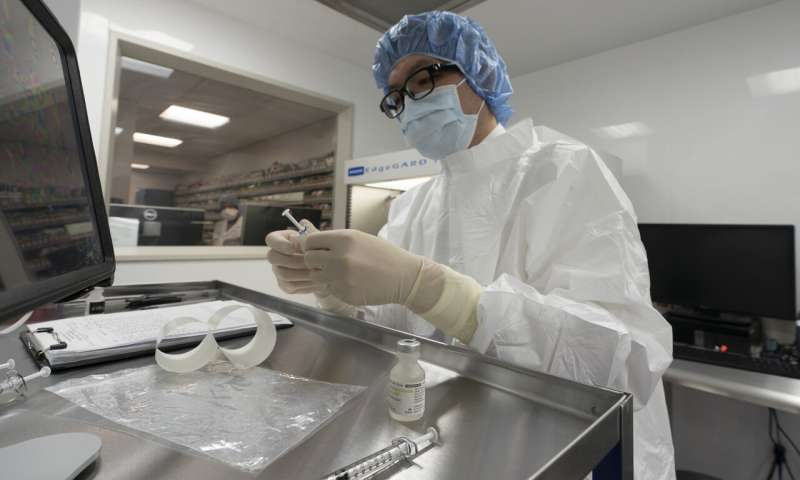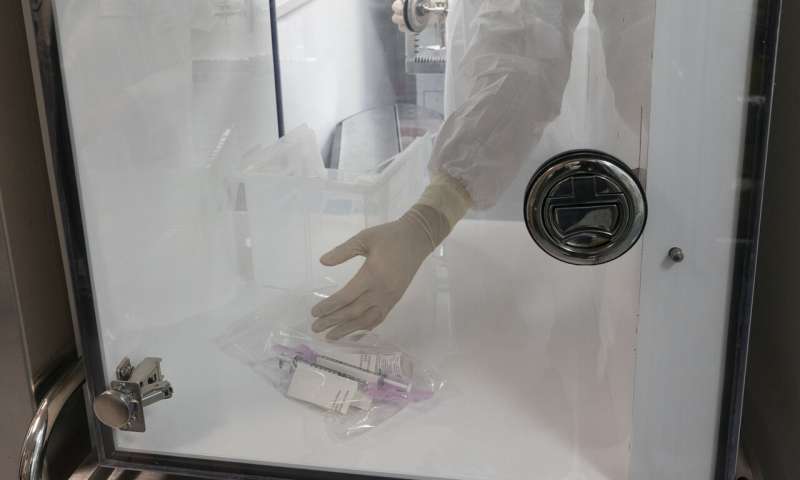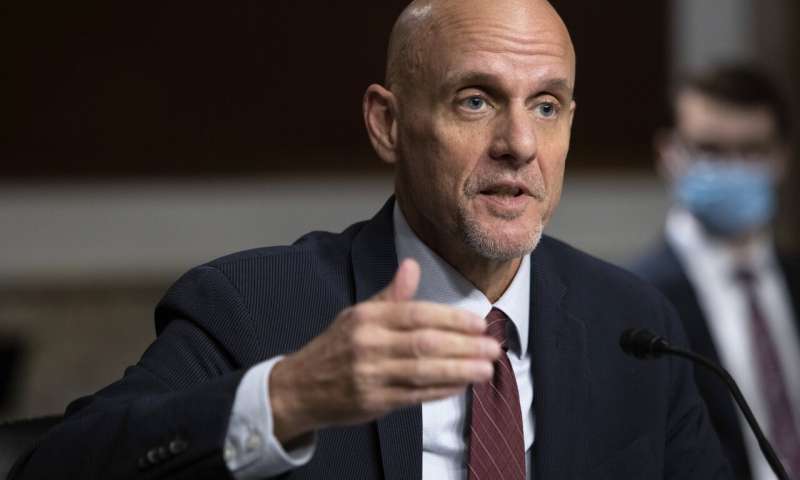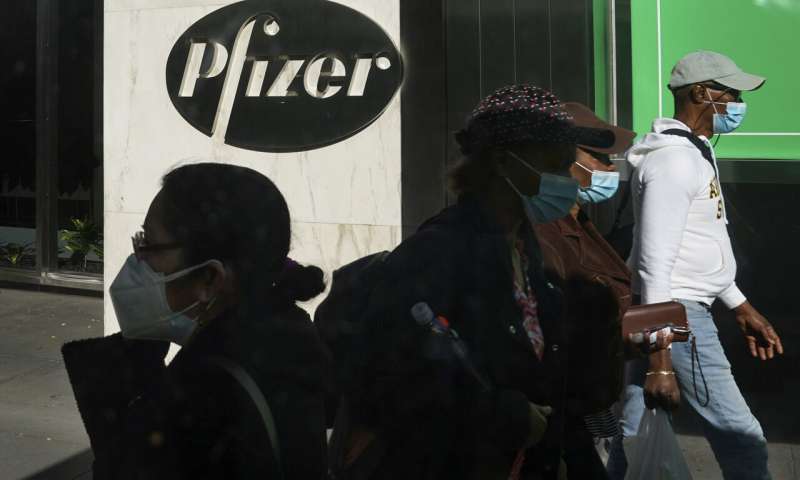US experts convene to decide whether to OK Pfizer vaccine

A U.S. government advisory panel convened on Thursday to decide whether to endorse mass use of Pfizer's COVID-19 vaccine to help conquer the outbreak that has killed close to 300,000 Americans.
The meeting of outside advisers to the Food and Drug Administration represented the next-to-last hurdle before the expected start of the biggest vaccination campaign in U.S. history. Depending on how fast the FDA signs off on the panel's recommendation, shots could begin within days.
The FDA panel functions like a science court. During the scheduled daylong session, it was expected to debate and pick apart the data—in public—on whether the vaccine is safe and effective enough to be cleared for emergency use. With unprecedented interest in the normally obscure panel, the allergic reactions shouldn't get the vaccine. Government authorities there are investigating two reports of reactions that occurred on Tuesday when Britain became the first country in the West to begin mass vaccinations against the scourge.
Still, a positive recommendation and speedy U.S. approval appeared nearly certain after FDA scientists issued an overwhelmingly positive initial review of the vaccine earlier this week.
FDA said results from Pfizer's large, ongoing study showed that the shot, which was developed with Germany's BioNTech, was more than 90% effective across people of different ages, races and underlying health conditions, including diabetes and obesity. No major safety problems were uncovered. Common side effects included fever, fatigue and pain at the injection site.
"The data presented in the briefing report were consistent with what we heard before and are really exciting," said Dr. William Moss, head of Johns Hopkins University's International Vaccine Access Center. "Nothing that I see would delay an emergency use authorization."

The meeting also represented an opportunity for regulators to try to boost public confidence in the breakneck development process that has produced the Pfizer vaccine and a string of other upcoming shots with remarkable speed—less than a year after the virus was identified.
The FDA has also faced weeks of criticism from President Donald Trump for not rushing out a vaccine before Election Day.
"There have been a lot of questions about why it takes us so long or are we being rigorous enough?" FDA Commissioner Stephen Hahn said in an interview. "I'm hoping that people will see with our transparency that we have taken a very rigorous stance on this."
Hahn said the agency had already teed up the process to authorize the vaccine by filling out all the legal paperwork in advance, regardless of the ultimate decision.
On Thursday's agenda:
RARE ADVERSE REACTIONS

The FDA uncovered no major safety problems in its review of Pfizer's 44,000-person study, including no allergic reactions of the type reported in Britain. But such studies can't detect rare problems that might only affect a tiny slice of the general population.
FDA reviewers noted four cases of Bell's palsy that occurred among people getting the vaccine. They concluded the cases were probably unrelated to the vaccine because they occurred at rates that would be expected without any medical intervention. But the agency did say cases of the nerve disorder should be tracked, given that other vaccines can cause the problem.
"I think we have to be upfront, without scaring people, that we don't know yet about any potential, rare, long-term adverse events," Moss said.
EFFICACY QUESTIONS
The FDA found the vaccine highly effective across various demographic groups. But it is unclear how well the vaccine works in people with HIV and other immune-system disorders.
The study excluded pregnant women, but experts were expected to tease apart the data for any hints in case women get vaccinated before realizing they're pregnant.

A study of children as young as 12 is underway.
IMPACT OF EMERGENCY AUTHORIZATION
Answering some of these questions will require keeping Pfizer's study going for many more months.
When the FDA panel met in October, experts warned against allowing study participants who received dummy shots to switch and get the real vaccine as soon as it receives the FDA's emergency OK. Doing that could make it impossible to get answers to certain questions, such as ho long the protection lasts.
Pfizer and BioNTech say they want to allow such participants to get the vaccine on request or, at the latest, after six months of follow-up. The FDA hasn't made clear if it will accept that approach.
"FDA is adamant that they want these trials completed," said Norman Baylor, former director of FDA's vaccine office.
Explore further
© 2020 The Associated Press. All rights reserved. This material may not be published, broadcast, rewritten or redistributed without permission.








 个人中心
个人中心 我的培训班
我的培训班 反馈
反馈












Comments
Something to say?
Log in or Sign up for free